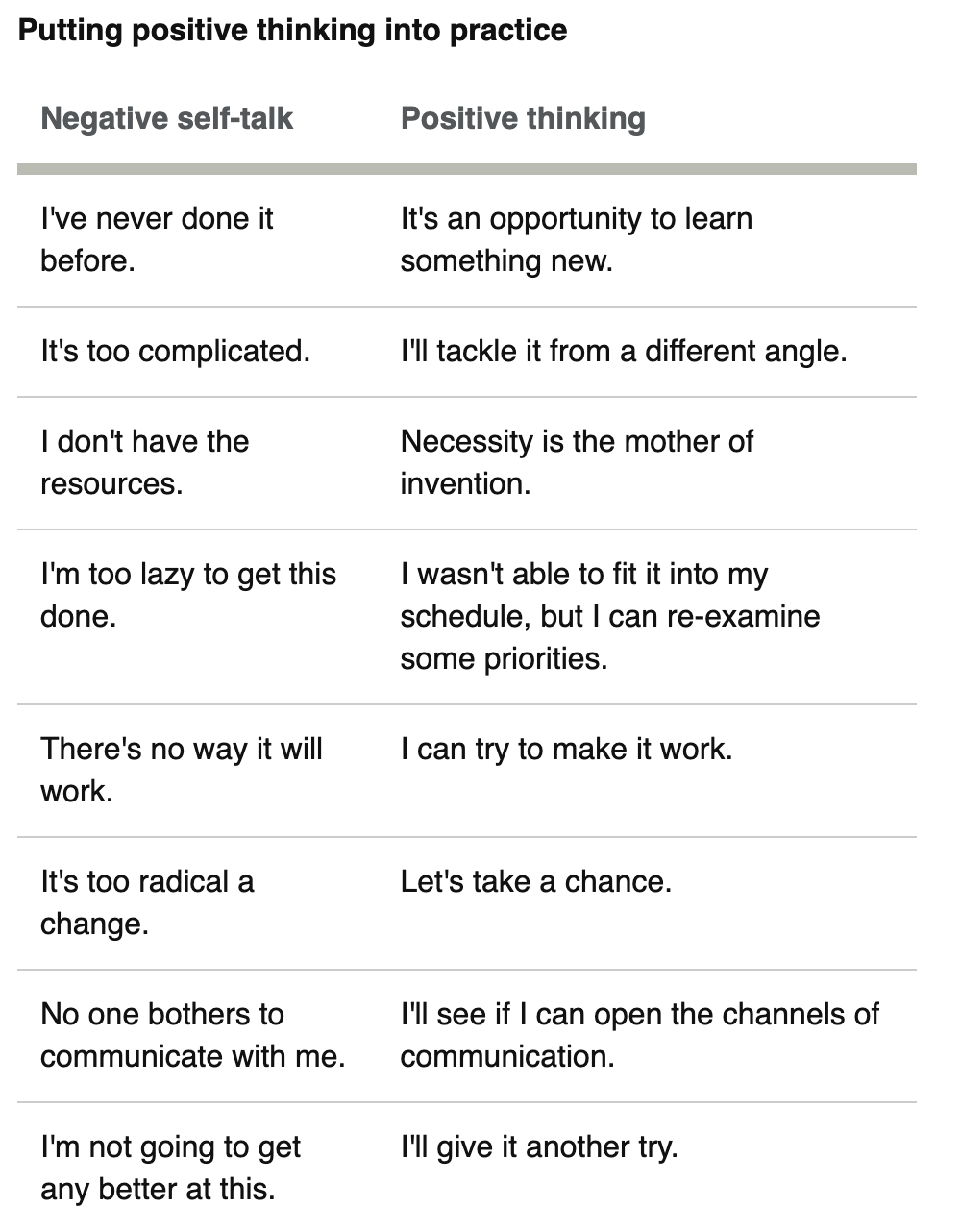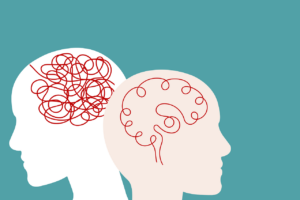Mind over matter

We have all heard the phrase before. Whether it’s from a coach before a big game, a co-worker before a presentation, or an encouraging friend before a date, it is used to emphasize the power of the mind over the body and physical world. The concept of “mind over matter” focuses on perception and how one’s perception can change the physical world. Although this concept may be hard to grasp at first, it is straightforward. But can changing your mindset really provide that many benefits?
The answer is YES. Simple changes in mindset can provide massive benefits in physical and mental health. Psychologists have been studying the power of positive thinking for years. Positive thinking does not mean that you have to clear your head of all negative thoughts or be filled with imaginative thoughts, but rather that you handle negative thoughts in a more upbeat, positive, productive way.
Thinking positively has been associated with:
⦁ Increased life expectancy
⦁ Lower rates of depression
⦁ Lower levels of distress
⦁ Greater resistance to the common cold
⦁ Better psychological and physical well-being
⦁ Better cardiovascular health and reduced risk of death from cardiovascular disease
⦁ Better coping skills during hardships and times of stress
Although it is easier said than done, positive self-talk, experiences, and perceptions can have a massive impact on our physical and mental health. The concept of mind over matter, or how our perceptions affect our reality, has been studied extensively.
One recent study examined views on aging, self-perceptions of aging, and aging stereotypes to examine how mindset plays a role in the physical and mental aging processes. The term “self-perceptions of aging” refers to the documented perceptions that individuals have of their own aging. SPAs are extremely individualized and based on a person’s experience and personal beliefs about the aging process. Individuals can either have a loss-related SPA or growth-related SPA, which reveals how they view the changes that they experience while aging. The study followed a national sample of adults aged 40-85 in Germany for up to 21 years, following up with participants every few years. It revealed that around the age of 65, many individuals had a negative SPA, meaning that they had a more negative perception of the age-related changes that they were experiencing. A large influence in this decline is how societal aging stereotypes affect personal views of aging. In general, the American public holds very negative aging stereotypes and subscribes to several misconceptions about aging that require debunking.
Center-affiliate faculty member and Distinguished Professor of Human Development and Family Studies, Manfred Diehl — and colleagues Michael A. Smyer of Bucknell University and Chandra M. Mehrotra of College of St. Scholastica — have outlined and debunked these misconceptions. It is important to understand that what you hear about growing older is not always true, and changing your mindset is pivotal.
The 3 misconceptions of aging and why they are not true:
- Growing older is primarily about loss and decline.
- Growing older is not necessarily all loss and decline. As we age, our intellectual skills and emotional regulation continually develop from ages 20–70. This development is mainly positive and can affect other functions in a positive manner.
- Adults have no control over the aging process.
- Adults have more control over the aging process than they believe. Engaging in physical activity for 30 minutes, 5 days a week can do wonders for your health, no matter when, no matter where. It is never too late to take control and there is always room for improvement.
- Age-related loss is not reversible.
- ⦁ Age-related loss may be reversible. A study showed that adults who had a more positive view of their aging were able to recover more easily from disabilities than individuals with negative views.
All these misconceptions contribute to individual SPAs, and it is important to break your thinking and train yourself to have a more positive outlook in life. Having a glass full mentality is easier said than done, so here are a few ways you can change your thinking to be more positive.

Table courtesy of MayoClinic.org
The next time you feel as though you cannot do something, be your own best friend, cheer yourself on, and remember that your mind is a powerful tool.
“You have power over your mind – not outside events. Realize this, and you will find strength.” Marcus Aurelius
ABOUT THE AUTHOR
Grace Weintrob is a junior majoring in Communication Studies with a minor in Stage, Sports, and Film Production at CSU. She is currently working as the digital media intern for the Columbine Health Systems Center for Healthy Aging.





